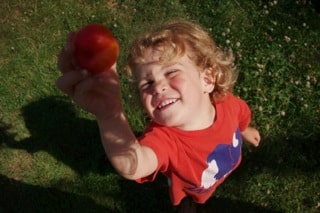The City of Campbell River identified agriculture as an opportunity to diversify the local economy since the downturn in the city’s resource based economy, and has also realized that municipal governments across North America are drawing connections between local food production, community development, and quality of life. The landscape around the City of Campbell River is rich for local food production, and cultivating the land is a way to improve economic diversity and food security in the community. With over 5000 hectares of land in the Agricultural Land Reserve (ALR), favourable climates, and good soil, there is significant agricultural potential. However, only 0.4% of this land is currently activated, and the city has experienced a 20% decrease of people working in the agriculture, food and beverage industry since 2001.
To build a strong and resilient agricultural sector in Campbell River, an Agriculture Plan was developed, which targets food security and self-sufficiency. This includes having the capacity to grow 10% of its food supply by 2031 and 50% by 2060 (in 2011, the city was only 0.03% self-sufficient). To achieve the 20-year goal, 1127 hectares of land would need to be activated by 2031. The city is taking incremental steps to reach this goal by supporting community gardens, encouraging residents to take courses at the local college, implementing a food map project, and changing bylaws to allow urban hens in residential areas.
Partnerships
- City of Campbell River
- B.C. Ministry of Agriculture
- Rivercorp (City Economic Development Office)
- Vancouver Island Health Authority
- North Island College
Stakeholders
- Residents of Campbell River
- Local Farmers
- Retailers
- Restaurants
Summary of the Process
Currently, the agriculture sector is marginal in Campbell River; the City is one of the first communities in British Columbia to undertake an AP where the industry is not already thriving. Considering there was strong public interest in Campbell River to plan for resilient food and agriculture systems, the City of Campbell River pursued a strategic framework to start-up an agriculture sector as part of the culture, economy and environment of a sustainable, liveable community.
City staff received Council endorsement en route to securing funding for their Sustainable Official Community Plan (SOCP) and Agriculture Plan process from the federal Community Works Fund, and the Investment Agriculture Foundation of BC. The two plans were developed in conjunction to ensure that both plans aligned with the overarching vision of creating a more sustainable community. To involve the public and key stakeholders in the development of the Agriculture Plan and SOCP, public engagement sessions such as a Visioning for Agriculture Forum, an Agriculture Plan workshop, and an on-line public survey were conducted. With the support of a newly formed steering committee, city staff, HB Lanarc Consultants Ltd., and From the Ground Up Consulting, a background report and draft AP were developed.
After two years of hard work, city council adopted Campbell River’s Sustainable Official Community Plan and the Agriculture Now Plan. Community members and stakeholders were invited to a Public Open House to learn about the plan and the key opportunities for Agriculture in Campbell River. The Agriculture Plan feeds into a number of the SOCP priorities, including climate and energy, local economy, and food self-sufficiency goals. The following food security policies have been committed to:
By 2020
- Campbell River will have capacity to be at least 10% self-sufficient in food.
- A community and/or demonstration garden will exist in every neighbourhood.
- The Pier Street Farmers Market is a direct marketing opportunity for local producers that will be supported.
By 2060
- Campbell River will have capacity to be 50% self-sufficient in food. This entails having the capacity for a largely self-reliant agriculture and food system, with the majority of food consumed locally being produced, raised and/or produced on Vancouver Island.
- Food stores from large to small will offer healthy food within a 10-minute walk of nearly all home.
The Agriculture Now Plan will help the City of Campbell River and partner organizations grow a resilient agriculture sector in Campbell River. The AP is intended to drive food production, attract new farmers, increase the value of the local farm economy, and draw existing and new residents into the agriculture sector. Success in building a viable agriculture sector in Campbell River provides other towns with similar attributes with a model and approach for attracting investment to the community.
Key Outcomes & Impacts
- To achieve these targets, the city is exploring tenure and subdivision options for strategic ALR areas, fund a Small Farm Development workshop, develop a marketing strategy to coordinate local agriculture promotion, and support an agriculture or horticulture program at the North Island College, among other activities.
- To raise awareness about local food production, processing, and purchasing, the web-based Food Map will help connect residents with local, regional and Vancouver Island sourced agricultural products.
- Private landowners can participate by providing spaces for local food production and listing their property, which includes businesses, backyards or farms as potential spaces for others to grow food. The City is currently working on an information package about considerations and types of agreements that could be formed for landowners and those interested in growing food.
For more information, please contact
Amber Zirnhelt
Sustainability Manager
City of Campbell River
Office: 250 286-5742
Email: Amber.Zirnhelt@campbellriver.ca





